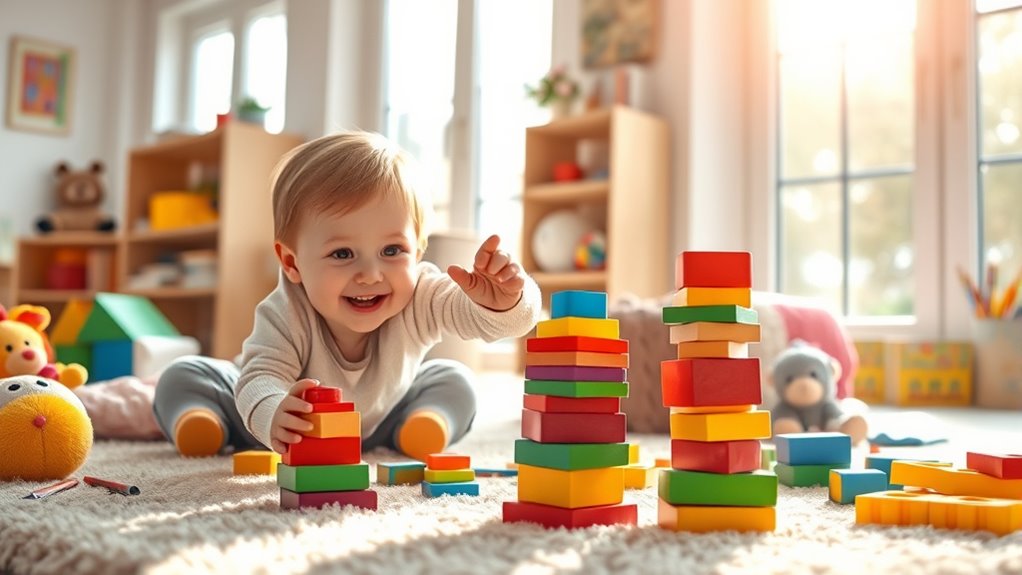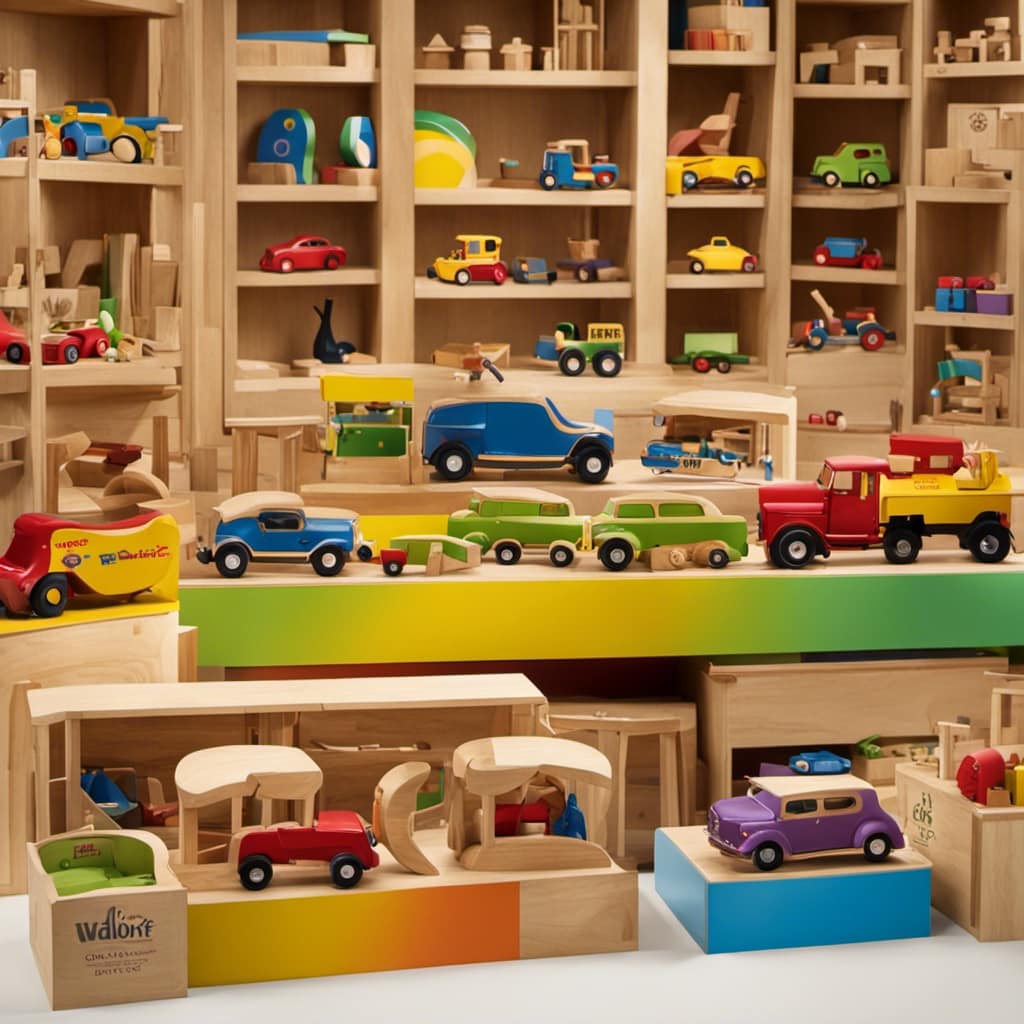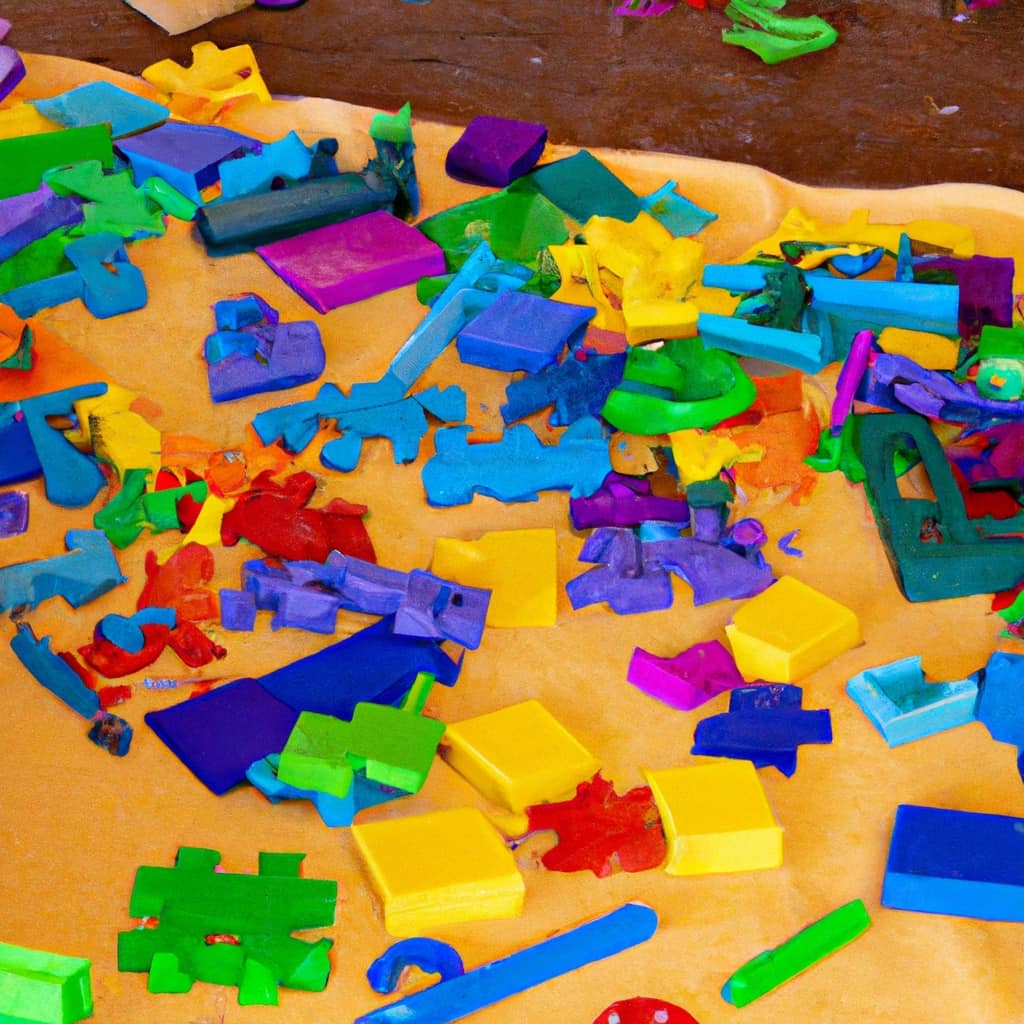Play is a key way to understand your child’s developmental milestones across physical, emotional, and cognitive growth. Through play, you can see how they develop skills like grasping, crawling, sharing, and problem-solving. It also reveals their social-emotional progress and curiosity. By paying close attention during play, you can support and encourage their growth at each stage. Keep exploring what play teaches and discover more ways to nurture your child’s development.
Key Takeaways
- Observing play behaviors reveals progress in motor skills like grasping, crawling, and stacking, indicating sensorimotor development.
- Engaging in pretend and problem-solving play demonstrates cognitive milestones such as creativity, planning, and adaptability.
- Social interactions during play, like sharing and seeking comfort, reflect emerging social-emotional skills and emotional resilience.
- Active caregiver participation enhances skill development and helps identify specific developmental needs through play observation.
- Noticing new skills or challenges during play provides insights into a child’s growth trajectory and areas needing support.

Play is an essential tool for tracking and supporting your child’s development, as it naturally encourages the acquisition of new skills. When you observe your little one engaging in play, you’re witnessing more than just entertainment—you’re seeing the building blocks of their sensorimotor development and social emotional growth. During play, your child explores their environment through their senses and movements, which helps develop coordination, hand-eye contact, and spatial awareness. For example, when they grasp toys, crawl, or stack blocks, they’re strengthening their muscles and refining their motor skills. These activities are fundamental milestones that indicate healthy sensorimotor development, laying the groundwork for more complex physical actions later on.
Beyond physical skills, play also plays a significant role in your child’s social emotional growth. As they interact with toys, caregivers, or peers, they’re learning how to express emotions, communicate needs, and understand social cues. If your child shares toys or seeks comfort during play, these behaviors reflect their emerging ability to manage feelings and develop empathy. Watching how they respond to success or frustration during play gives you insight into their emotional resilience and social awareness. Play provides a safe space for your child to experiment with different emotional responses, helping them build confidence and self-regulation skills essential for healthy social interactions.
Furthermore, play offers opportunities for your child to develop important cognitive skills that support their overall growth. When they engage in pretend play, solve puzzles, or explore new toys, they’re practicing problem-solving, memory, and creativity. These cognitive milestones are interconnected with sensorimotor and social emotional development, as they foster independence and curiosity. As your child navigates different play scenarios, they learn to adapt, plan, and think critically, which are fundamental skills for future learning. Additionally, understanding the importance of visual processing in play can help you better support your child’s development, as it contributes to their ability to interpret and respond to visual information effectively.
Your role as a caregiver is to facilitate and encourage diverse play experiences. Providing a variety of age-appropriate toys and engaging with your child during playtime helps support their development milestones. By observing their play behaviors, you can gauge whether they’re meeting typical milestones or if they might need additional support. Remember, every child develops at their own pace, but active play remains a powerful tool for nurturing their sensorimotor foundation, emotional health, and cognitive growth. So, stay attentive, participate actively, and celebrate each new skill your child demonstrates through play.
Frequently Asked Questions
How Can Parents Support Children Who Lag Behind Milestones?
You can support children who lag behind milestones by encouraging activities that promote sensory integration and social interaction. Engage them in play that stimulates their senses, like tactile or auditory experiences, and create opportunities for social engagement with peers or adults. Be patient and positive, offering consistent support and encouragement. If needed, consult a specialist to develop tailored strategies, ensuring your child feels confident and guided along their developmental journey.
Are There Specific Toys That Promote Developmental Progress?
Think of toys as keys opening your child’s potential. To promote developmental progress, choose specific toys that foster growth. Look for toy recommendations like building blocks, puzzles, and sensory toys—these are excellent developmental toys that boost fine motor skills, problem-solving, and creativity. By selecting engaging, age-appropriate options, you help your child navigate their growth journey more confidently and joyfully.
How Do Cultural Differences Influence Developmental Milestones?
You might wonder how cultural differences influence developmental milestones. Cultural practices shape when and how children reach milestone expectations, as some cultures emphasize independence, while others focus on social harmony. These variations can affect your child’s development, making milestones appear at different times. Recognizing that milestone expectations vary across cultures helps you appreciate diverse growth patterns and supports your child’s unique developmental journey within their cultural context.
When Should I Consult a Specialist About Developmental Concerns?
Did you know that about 1 in 6 children experience developmental delays? If you notice early warning signs like difficulty talking, crawling, or socializing, you should consult a specialist promptly. Don’t wait if you’re concerned—early developmental assessments can make a significant difference. Trust your instincts and seek professional help when needed. The sooner you act, the better your child’s chances for support and progress.
Can Play Activities Be Adapted for Children With Disabilities?
You can adapt play activities for children with disabilities by incorporating inclusive play and using adaptive toys. These tools help guarantee all children can participate, regardless of their abilities. You might modify games, adjust rules, or introduce specialized equipment to meet individual needs. By creating an inclusive environment, you support your child’s development and ensure they enjoy meaningful, engaging play experiences that foster growth and confidence.
Conclusion
By engaging in play, you help your child reach important developmental milestones, from crawling to storytelling. Remember, each child is unique—think of it as their own personal Renaissance! Your encouragement and patience turn everyday moments into powerful opportunities for growth. So keep playing, exploring, and celebrating those small wins. After all, you’re guiding them through their very own time of discovery—no need for a DeLorean, just your love and support will do!











